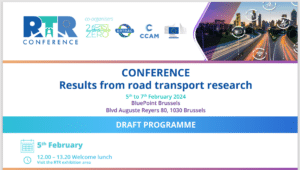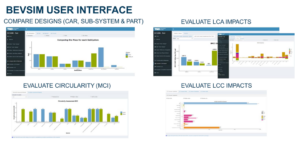
ALMA Project Concludes 3-Year Journey, Pioneering Future of Circular Electric Mobility
The ALMA consortium gathered for the final time at the General Assembly in Cologne, Germany to present an overview of the project outcomes and the way ahead.
Lightweight vehicles are a concern for the internal combustion engine car of yesterday, but now the world needs the car of the future, a lightweight electric vehicle whose parts can be reused and recycled. Imagined by a strong, international collaboration of scientists, researchers, and engineers, ALMA is breaking boundaries and established systems, looking to revolutionize the automotive industry for a greener future.
ALMA’s ambition is to make electric cars more sustainable, lightweight, and efficient through an eco-design approach using advanced materials. ALMA’s strength is in its cooperation and altruistic approach for the people and planet.









The ALMA consortium involves a diverse group of 9 partners from 4 different EU countries: France, Germany, the Netherlands and Spain.


The ALMA consortium gathered for the final time at the General Assembly in Cologne, Germany to present an overview of the project outcomes and the way ahead.

Exciting news from ALMA! 🌐 ALMA project will be showcasing its final results at the RTR Conference in Brussels, Belgium between February 5-7, 2024. Organised

The LCA-based application of BEVSIM allows users to model the materialisation of, for instance, a certain body-in-white design in BEVSIM, receive feedback on the associated environmental impacts and compare it with a selected reference design.

ALMA is an EU Commission funded project with a global ambition.
The ALMA Project has received funding from the European Union’s Horizon 2020 Research and Innovation Programme under Grant Agreement No: 101006675
| Cookie | Duration | Description |
|---|---|---|
| cookielawinfo-checkbox-analytics | 11 months | This cookie is set by GDPR Cookie Consent plugin. The cookie is used to store the user consent for the cookies in the category "Analytics". |
| cookielawinfo-checkbox-functional | 11 months | The cookie is set by GDPR cookie consent to record the user consent for the cookies in the category "Functional". |
| cookielawinfo-checkbox-necessary | 11 months | This cookie is set by GDPR Cookie Consent plugin. The cookies is used to store the user consent for the cookies in the category "Necessary". |
| cookielawinfo-checkbox-others | 11 months | This cookie is set by GDPR Cookie Consent plugin. The cookie is used to store the user consent for the cookies in the category "Other. |
| cookielawinfo-checkbox-performance | 11 months | This cookie is set by GDPR Cookie Consent plugin. The cookie is used to store the user consent for the cookies in the category "Performance". |
| viewed_cookie_policy | 11 months | The cookie is set by the GDPR Cookie Consent plugin and is used to store whether or not user has consented to the use of cookies. It does not store any personal data. |